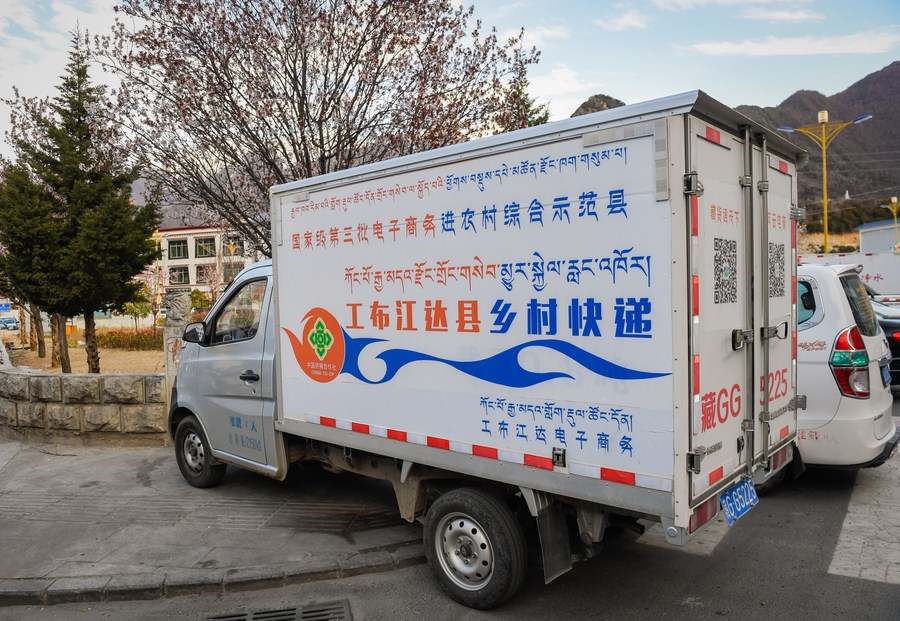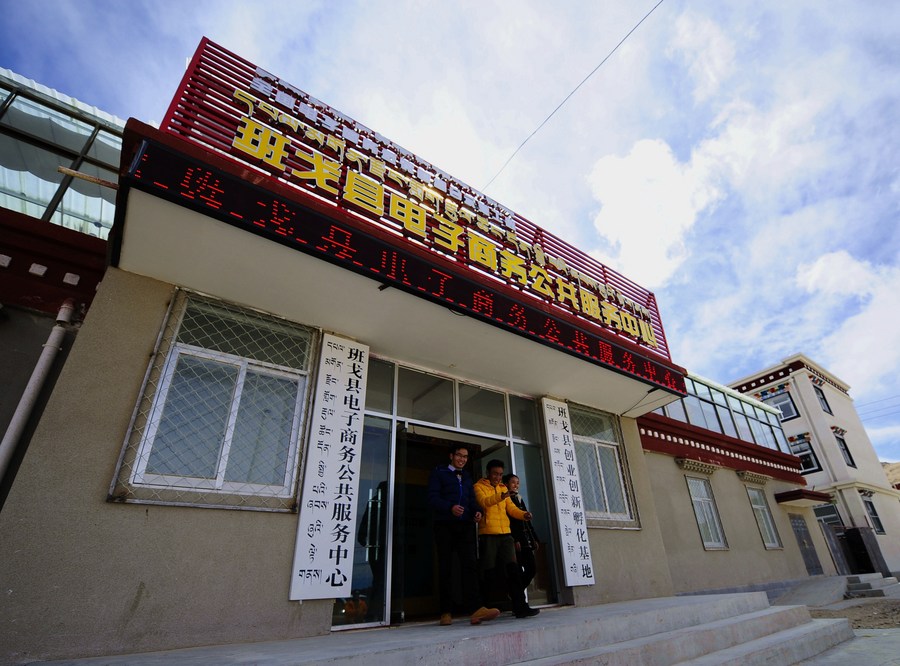
E-commerce is booming in China, even in the most remote corners of its plateau region of Tibet. As saffron, yak meat, and zanba are sent nationwide, the people on the "roof of the world" are reaping the benefits of moving online.
LHASA, Dec. 11 (Xinhua) -- The past month has been so busy for Norbu that he needed to hire three extra people to help him pack orders.
Norbu runs a local specialty shop in Lhasa, capital city of Tibet Autonomous Region. While previously the business was ticking over just fine, it wasn't until he opened online stores on Taobao and JD.com, the country's two major online shopping platforms, that things really shifted gears.
"I made 70, 000 yuan (about 10,725 U.S. dollars) on 'Double 11'," he said, referring to sales on Singles' Day, the annual nationwide online shopping promotion held on Nov. 11.

File photo shows a delivery truck in Gongbo Gyamda County, southwest China's Tibet Autonomous Region. (Xinhua file photo)
As information technology and logistics transforms the way that customers shop, retailers, too, must adapt, and even in the most remote corners of this plateau region in southwest China, e-commerce is booming. Just as rural shoppers in Tibet receive parcels from across the country, Tibetan specialties are shipped out to customers beyond the plateau, helping generate new avenues of income for the people on the "roof of the world."

A host promotes products via livestreaming during an exhibition of Tibet Autonomous Region's poverty alleviation achievement on Oct. 19, 2020. (Xinhua/Jigme Dorje)
During this year's Singles' Day, online sales in Tibet reached 422 million yuan (65 million U.S. dollars), up 29.55 percent year on year, according to the regional department of commerce. Among them, agricultural products generated 75 million yuan in sales, a 21.75-percent surge from the same period of last year.
Saffron, yak meat, Tibetan medicine and zanba, a doughy Tibetan staple, were among the most sought-after goods nationwide.

Photo taken on March 17, 2020 shows Dainzin, an online saleswoman, displays products in Coqen County, southwest China's Tibet Autonomous Region. (Xinhua file photo)
Over the four days following "Double 11," 155 tonnes of cargo left Lhasa Konggar International Airport, up 16 percent year on year.
In Zanda County, Ali Prefecture, products made from tiny sea buckthorn berries have brought big cash returns to local farmers, as fruit juice and oil were sent out to all four corners of the country.

File photo of an e-commerce service center in Baingoin County, southwest China's Tibet Autonomous Region. (Xinhua/Jigme Dorje)
Tibet had 776 e-commerce service centers in villages in its 74 county-level areas by the end of September; aided by the region's 99-percent broadband and 4G coverage, and 100,000 kilometers of highway. You cannot underplay how much mobile Internet and transportation infrastructure has helped turn around, and create the fortunes of Tibetans.
"There's huge potential in Tibetan products, and e-commerce will continue to drive the local market," said Gasong Meilang, vice director of the regional department of commerce, "The sector is helping rural residents increase their incomes and aiding officials to consolidate local poverty alleviation efforts." ■



